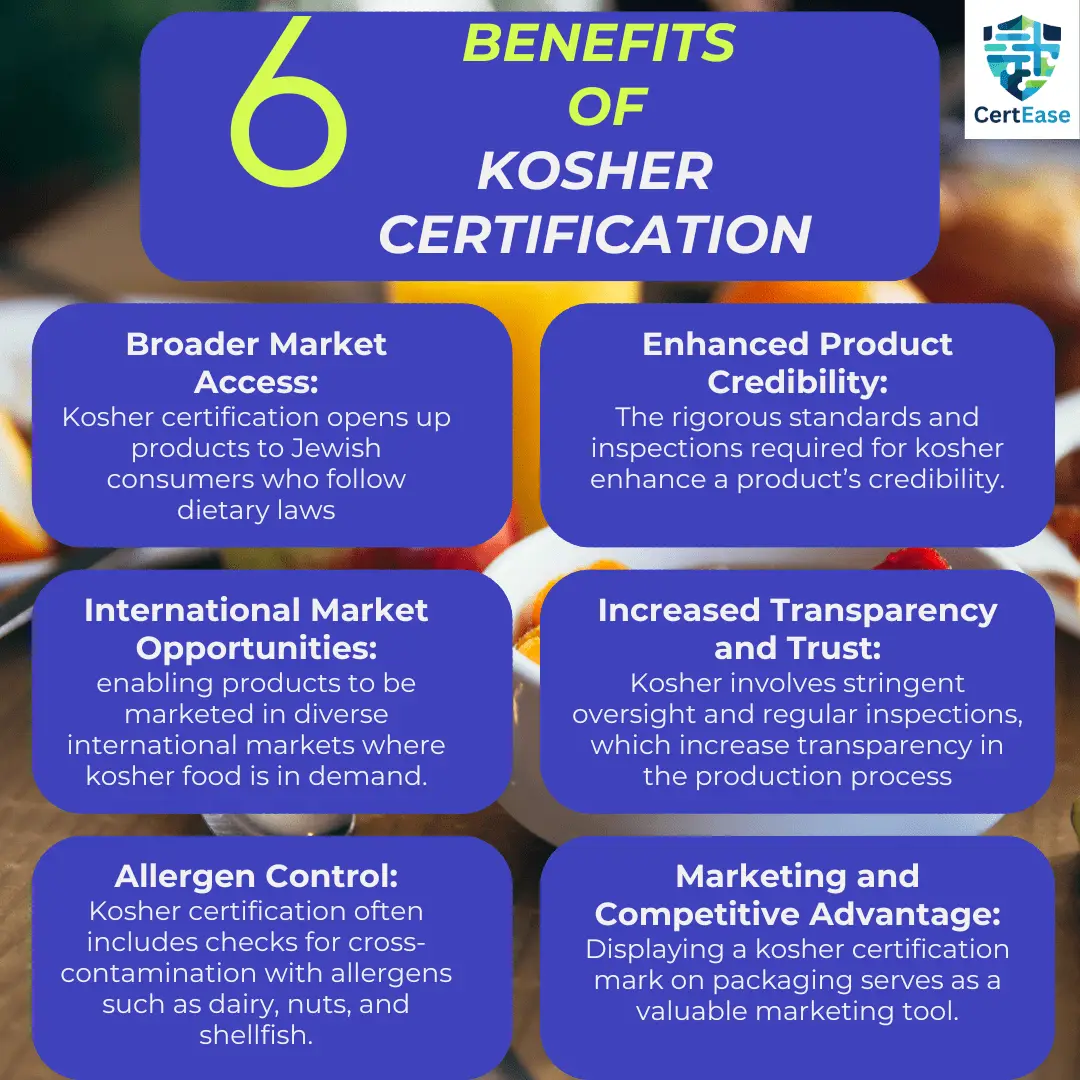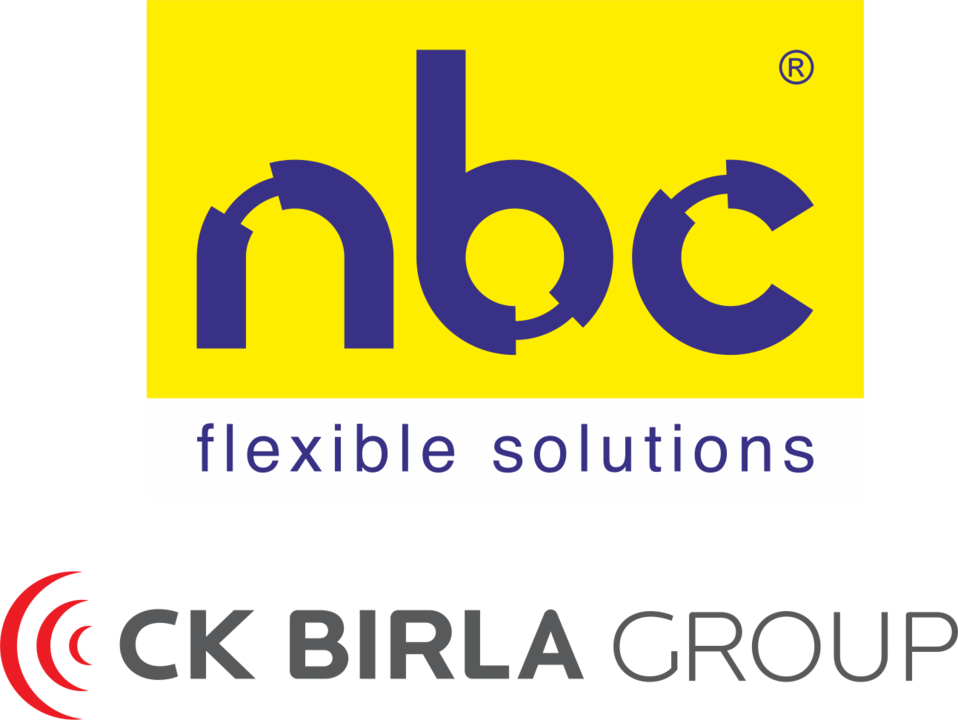Please fill out the details below, and one of our executives will be in touch with you shortly!
Certease is one of the trusted & well-known Kosher certification service providers in Philippines. We specialize in provisioning Kosher Certification in Philippines & other major cities in Philippines such as Manila, Quezon City, Cebu City, Davao City, Makati, Zamboanga City, and Baguio City.
At Certease, we understand the requirements of kosher certification of a business and provide a tailor-made solution. With our extensive expertise and industry knowledge over the past 15 years, we provide comprehensive kosher certification solutions in Philippines to make sure businesses achieve hassle-free kosher certificates in Philippines.
Our team of kosher experts in Philippines is dedicated to guiding you through the kosher certification process, ensuring compliance with Kosher standards and regulations. We offer efficient and streamlined certification procedures, enabling your products to gain access to kosher markets in Philippines & worldwide.

Let’s understand the Role of Kosher Certification in Food Safety and Quality Assurance. Kosher is described as any food that complies with the strict set of Jewish dietary rules & regulations. Kosher diet rules are known as kashrut. These laws guide on foods that are permissible to eat, how they should be prepared, how to combine them & which combinations of foods people should avoid eating.
In Hebrew, the meaning of the word “kosher” is fit or proper. Kosher food in Philippines is any type of food that meets the dietary laws outlined in Jewish & is fit & safe for consumption by Jewish people. There are many foods that are considered kosher; list of kosher foods includes fruits, vegetables, meat, poultry, and dairy products.
Consuming kosher-approved foods in Philippines holds significance for individuals who adhere to Jewish dietary laws (kashrut), as well as for those who seek products or foods they consume to meet certain level standards of quality and integrity.
The Kosher certificate is a document or a certificate issued by kosher certification agencies and the Chief Rabbinate of Israel after the inspection & verification that the products are made in accordance with kosher law, in which a Rabbi audits the process & the facility to certify that the products which are manufactured (usually food products) fulfill the biblical precepts of the Jewish religion.
Rabbi is a key person in any kosher certification agency in Philippines as he is the approver of kosher standards in Philippines. The certifying agency tracks and monitors every process & its status through record-keeping of processes and ingredients & other relevant information, periodic audits are conducted at the manufacturing facility to maintain credibility.
Here are some of the reasons why consuming kosher-certified foods in Philippines is important:
1. Adherence to Religious Beliefs & regulations: For orthodox Jews, adhering to kosher dietary laws is a very important aspect of their religious practice. Consuming kosher-certified foods allows them to uphold these beliefs and helps them maintain and stay connected to their cultural and spiritual heritage.
2. Assurance of quality in food: Obtaining kosher certification in Philippines involves in-depth inspection and adherence to strict standards of cleanliness, purity, and a standardized preparation process. This proves that kosher-certified foods are of high quality and meet all necessary criteria with regard to the ingredients that are used and the food production processes.
3. Dietary Restrictions: Kosher dietary laws prohibit the consumption of certain foods, which involve pork shellfish, and many other types of foods, and it is required the separate the meat and dairy products. Kosher approval in Philippines provides clarity and assurance for consumers who follow dietary restrictions, helping them make the right choices about the foods they consume.
4. Health and Safety: The strict requirements for kosher certification in Philippines often involve thorough inspections & audits of food production facilities & documentation, which can help to improve food safety and hygiene practices In the manufacturing facility. This will also help reduce the risk of food contamination and free from foodborne illnesses or diseases.
5. Worldwide Market Access: Having a kosher symbol can also enhance the marketability of food products, as it creates opportunities for businesses to reach Jewish consumers who give importance to kosher foods in Philippines. Additionally, for some non-Jewish consumers kosher certification acts as a mark of quality and purity, further helping in expanding the market reach.
By obtaining a kosher certificate in Philippines for your products, businesses can gain more consumers & benefit from increased consumer trust, and confidence, improved brand reputation, product labelling flexibility, reduction in waste levels, and improved product safety standards. Moreover, those who follow specific religious dietary guidelines provide access to a large number of potential customers.
There are many industries that can get kosher certification to showcase that their products comply with Jewish dietary laws and cater to kosher consumers in Philippines. Below are some of the list industries that are eligible to get kosher certification in Philippines:
1. Food manufacturing & production companies: These companies are into the manufacture of food products such as packaged foods, beverages, snacks, baked goods, dairy products, and more.
2. Food processing units: Facilities that are involved in the processing of raw ingredients into finished food products, such as meat, fruit, and vegetable processing plants and grain mills may also need to get kosher certification.
3. Kosher certification for restaurants and Catering Services: Restaurants, cafes, hotels, and food catering services that wish to offer kosher meals in Philippines or provide services to kosher events can obtain kosher certification for their facilities and menus.
4. Food Retail stores or shops: Some of the supermarkets, grocery stores, specialty food shops, and other retail outlets selling kosher-certified products in Philippines may look for kosher certification to deliver services to Jewish consumers.
5. Pharmaceuticals industry: There are a set of certain pharmaceutical products, such as vitamins, supplements, and medications, which may also require kosher certification as well if they contain ingredients derived from animal or dairy sources.
6. Personal Care & Cosmetics Products: Some cosmetics, toiletries, and personal care items may contain ingredients that may cause concern to kosher consumers, hence, having kosher certification makes it relevant for manufacturers in these industries.
7. Ingredients and other Additives: Manufacturers and suppliers of food ingredients, additives, and flavourings may need kosher certification for their products to ensure kosher compliance in Philippines for their products in accordance with dietary laws.
Kosher certification is available to various industries in Philippines. This certification is beneficial for any industry involved in creating, handling, or selling products consumed by individuals who adhere to kosher dietary laws.
The time required to get kosher certification in Philippines will vary from organization to organization, but typically it takes a few weeks to a month time to certify a company. This includes several processes and steps; post clearance of inspection is when an organization gets the kosher certificate in Philippines. once the organization & its product are kosher certified they should look into the maintenance of kosher certification since it’s an on-going commitment.
The cost of obtaining kosher consulting services in Philippines can depend & vary based on many factors. Factors that influence the kosher registration cost in Philippines include the type of product, production processes, equipment status, location, and the certifying agency that is chosen. The cost of kosher certification may range from a few hundred to several thousand dollars, depending on the difficulty of the certification process.
It’s important for businesses to consider this certification investment as a strategic one, as obtaining kosher approval services in Philippines can open doors to broader markets and build consumer trust & get more business. By understanding the specific requirements and working with reputable kosher certifying agencies in Philippines like CertEase, businesses can navigate the kosher process in Philippines efficiently and cost-effectively.
All Kosher foods that are sold in the market are marked with a hechsher, a symbol of rabbinic approval which indicates the food meets the kosher certification standards of dietary laws- kashrut is usually printed on the outer box or label of any packaged food product.
Kosher markets sell kosher foods exclusively, while many supermarkets, stores & restaurants all over the world have a separate kosher section available with designated kosher-certified products. The kosher symbol varies regionally from one another since it’s not a universal standard. Some of the common kosher symbols look like OU, KSA, OK, Star-K, and many other kosher certification bodies in Philippines.
There are many different types of kosher symbols which are available in the market, also known as hechshers, which are used to indicate that a product meets kosher dietary standards & requirements. These symbols are usually given by various kosher certification agencies in Philippines or rabbinical authorities. Each has its own logo & the symbol differs from one another. Here is some common kosher symbol list in Philippines:
There are thousands of kosher certification symbols worldwide, which is why it is very important to understand the difference between the ones that are lesser-known and the well-established & globally recognized ones. When choosing kosher symbols for certification, it’s important for you to consider the following factors:
It’s important to carefully understand & evaluate these factors, by choosing the most appropriate kosher logo in Philippines for your products; you can increase confidence in the consumers about the product’s compliance with kosher standards.
Kosher certificate requirements in Philippines ensure that products adhere to Jewish dietary laws. To obtain certification, ingredients used in products must be kosher-certified or comply with kosher dietary laws.
Production facilities should undergo inspection to verify cleanliness and compliance with kosher standards, including separation of meat and dairy processing areas. Certified products must be produced under the supervision of a rabbi or authorized kosher certifying agency in Philippines.
Proper labelling with the kosher certification symbol is required to indicate compliance with the kosher standards in Philippines. Detailed records of ingredients, production processes, and inspections must be maintained & kept handy in the facility. Regular checks and audits are conducted to ensure on-going compliance. Production staff should also undergo training on kosher dietary laws and production practices.
Certification is typically valid for a specific period and later the organization must renew kosher certification in Philippines through continued inspections to maintain compliance. These requirements help manufacturers provide services to consumers who observe & follow kosher dietary laws, improving consumer trust and marketability.
The term “kosher” refers to food that agrees to Jewish dietary laws, and the term “pareve kosher” refers to food that is neither meat nor dairy and is considered neutral in terms of kosher dietary restrictions or laws. Basically, all types of pareve kosher foods are considered kosher, but not all kosher foods can be pareve.
Here’s the key difference between Kosher & Pareve Kosher:
1. Kosher: The term kosher means all foods that comply with Jewish dietary laws – kashrut, the regulation includes things regarding the types of animals that can be consumed, the slaughtering procedure and & how it is prepared, and the prohibition of mixing meat and dairy products.
2. Pareve Kosher: Pareve kosher foods are a subset of kosher foods that are neither meat nor dairy. They are neutral and can be eaten with both meat and dairy dishes without violating kosher dietary laws. Examples of pareve kosher foods include fruits, vegetables, grains, fish, eggs, and certain processed foods that do not contain meat or dairy ingredients.
The documents required for kosher implementation in Philippines may differ from one to another depending on the certifying agency and the nature of the products or processes involved. However, here are some common documents that are usually required during the kosher certification process:
1. Details of Company & location
2. Food safety, drug, or other relevant licenses
3. Supplier declaration
4. Details of Product or Ingredient List
5. Manufacturing Process Description or process flow chart
6. List of all types of raw material used
7. Facility Layout or floor plan layout
8. Kosher Certification Application
9. Cleaning Procedures Documentation
10. Kosher Training Records
11. Product Labels
12. Audit Reports
It’s important to get in touch with one of the kosher certification consultants in Philippines to determine & understand what are the specific documentation required for the kosher certification process in Philippines, as they may vary based on factors such as product type, production methods, and industry regulations.
If you are thinking about how to become kosher certified in Philippines these are the following process that your organization need to undergo to get kosher complaint in Philippines.
Below are the lists of some benefits of obtaining kosher certification for your product in Philippines
1. Enhanced Marketability: Kosher certification opens doors to a broader international market, providing services to Jewish and non-Jewish consumers who look for products that meet Kosher standards & requirements.
2. Consumer Confidence: Kosher certification assures consumers that the product they are using is compliant with strict kosher laws and quality standards, which will in turn help enhance trust and confidence in the brand & the products.
3. Global Recognition: Having kosher certification for your product expands the market reach to worldwide markets, as kosher standards are known globally & are recognized & respected.
4. Increased Sales: With the growing demand for kosher products internationally, getting kosher certification for your product can help increase sales and revenue for businesses across the world.
5. Improved brand recognition: Obtaining kosher certification for your product enhances a company’s reputation & brand value for producing quality products that meet stringent kosher requirements in Philippines.
6. Access to New Markets: Kosher certification allows businesses to enter new markets & access new customers, including Jewish communities and niche markets where people follow kosher diets & kosher products are in high demand.
7. Compliance with Kosher Dietary Laws & regulations: Kosher certification for small businesses in Philippines ensures compliance with Jewish dietary laws, including the prohibition of certain ingredients and the use of specific production methods.
8. Product Differentiation: Having kosher certification for food manufacturers in Philippines sets your products apart from your competitors; this will act as a unique selling point for your company for those who are health-conscious and ethically-minded consumers.
9. Quality Assurance: Kosher certification involves detailed inspection and supervision, guaranteeing the quality and integrity of the certified products.
10. Religious & Ethical Considerations: For businesses that are catering to Jewish consumers or those who are sensitive to religious dietary restrictions, obtaining Online Kosher certification in Philippines demonstrates respect for cultural and religious values.
The kosher audit procedure in Philippines involves a detailed inspection & checks of the manufacturing facility’s ingredients, processes, and procedures and verification of kosher documentation in Philippines to ensure that the product complies with kosher dietary laws & regulations. The process includes a review of ingredient sourcing, production methods, and cleanliness of the facility.
Kosher certification audits in Philippines may also involve inspections of equipment, storage areas, and labelling practices. The audit is usually conducted by a rabbi from an authorized kosher certifying agency in Philippines to verify & check proper segregation of meat and dairy products.
Documentation of ingredients, production records, and certifications is reviewed. Any non-compliance issues which are identified in the audit corrective actions would be recommended. Regular audits & checks help maintain kosher certification and ensure on-going compliance with kosher regulations in Philippines.
Kosher certification consultants in Philippines play a very important role in guiding & helping food manufacturers & processors, restaurants & food catering establishments through the process of obtaining and maintaining kosher certification.
If you are thinking why you should hire a kosher consultant? It’s because kosher consultants are experts in Jewish dietary laws and regulations, providing valuable assistance in understanding and guiding in implementing kosher rules & regulations. They firstly assess your current manufacturing practices, ingredients, and procedures in the organization to identify if there are any areas of non-compliance and recommend necessary changes to be made in order to meet kosher standards.
Kosher advisors in Philippines also help you understand & go through the certification process, liaising with certification agencies, conducting internal audits, and providing assistance in necessary documentation preparation as well. Their expertise extends to training staff on kosher rules & regulations & what are the practices to follow to maintain on-going compliance, and addressing any concerns or inquiries related to kosher certification.
Ultimately, kosher consultancy in Philippines like Certease serve as trusted advisors & a well-known kosher certifier in Philippines, helping businesses to achieve and uphold kosher certification while building confidence among Jewish consumers in the kosher status of their products or services.
Looking for Kosher certification agencies in Philippines? Look no further! Reach out to us at www.certease.com with your certification queries or reach us at +91 89517-32524, and our specialists will promptly respond.
To get to know more about our services & offerings, visit our official website www.certease.com & provide your contact details to us and one of our certification experts will get in touch with you right away. We are committed to understanding your certification requirements and providing the best Global Kosher certification services in the market.

Directly or indirectly improving the organization’s profits in the short/long term in a sustainable manner
Our seasoned professionals bring expertise to every project, ensuring precision and success.
Our dedicated team ensures reliability and prompt solutions around the clock, Count on us for unwavering support.
Our experts bring verified proficiency to address your specific needs. Choose assurance, choose excellence.
Tailored to suit your specific business needs, our services make it effortless for you to obtain high-quality certifications.








Please complete the form below to receive a detailed Cost Estimation.
